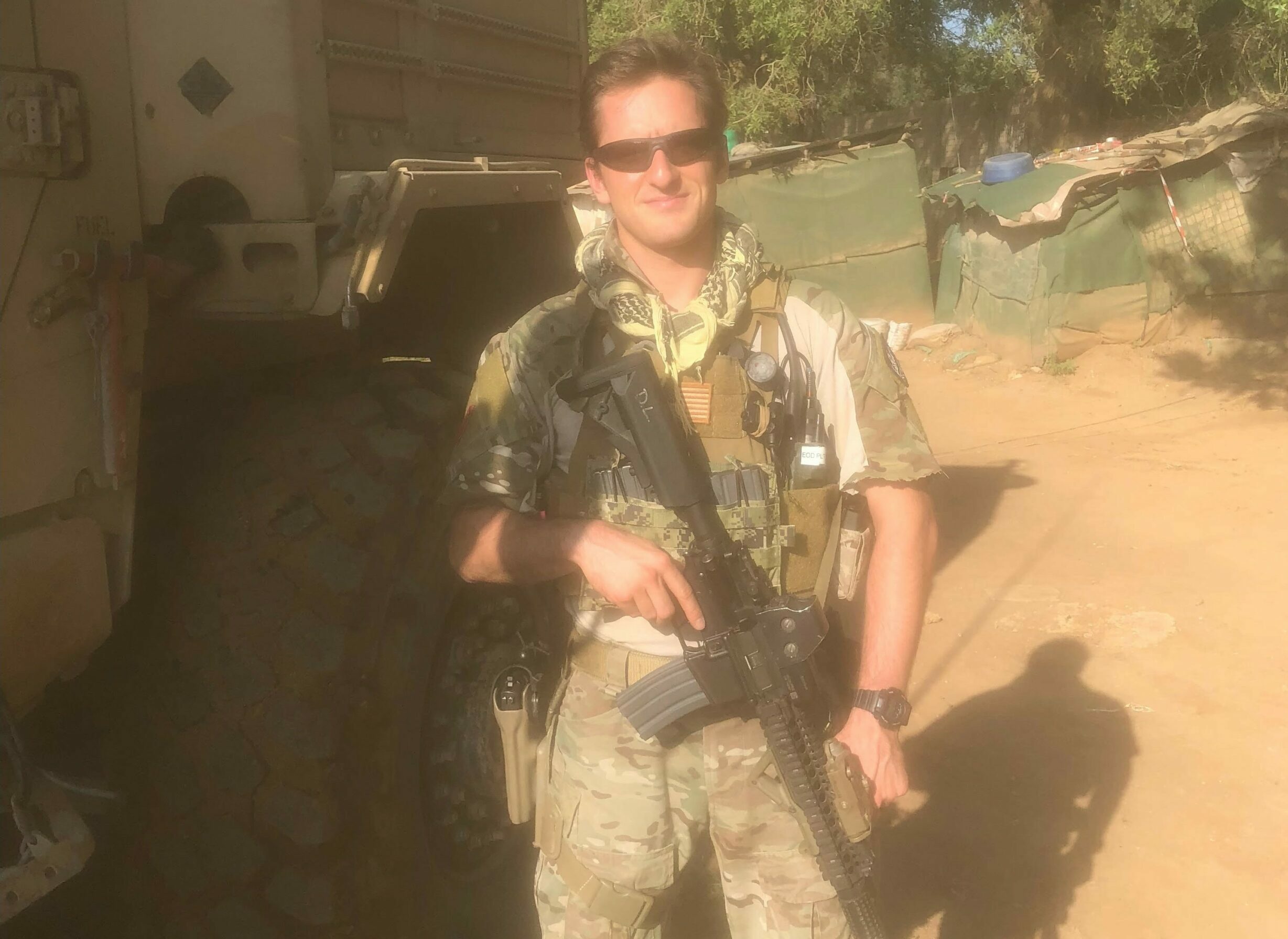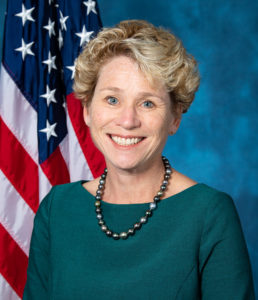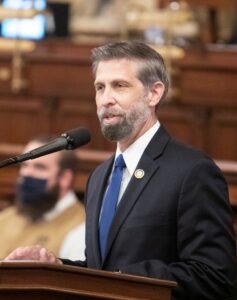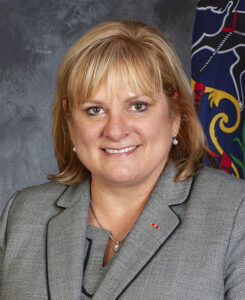As Military Struggles to Find Recruits, DelVal Pols Tout the Benefits of Service

When the colonists declared their independence from Great Britain 245 years ago, citizens rallied to form the first Continental Army led by Gen. George Washington.
Since then, many citizens have answered the call to serve in the military, and the benefits of that service can last a lifetime.
Today, however, the U.S. military is struggling to attract recruits. And the number of people in the key age demographic for enlistment who can meet minimum requirements is shrinking.
Army Chief of Staff Gen. James McConville told Congress in April only 23 percent of young people ages 17 to 24 are qualified to serve, down 29 percent in recent years. And NBC News reported only 9 percent of those eligible would even consider joining, the lowest number since 2007. All branches are struggling to meet their recruitment goals.
“We recognize that we are in a very challenging recruiting environment, in competition with our fellow services and the private sector for the top talent we need to serve as the next generation of Navy leaders and warfighters,” said Navy Cmdr. Dave Benham, director of public affairs for the Navy Recruiting Command.
The Navy’s goals for fiscal year 2022 recruits are 33,400 active enlisted service members, 7,400 reserve enlisted, 2,468 active officers, and 1,350 reserve officers, he said.
An Army spokesperson said, “This is the most challenging recruiting market in the last 20 years. In FY22, Army recruiters are facing a tight labor market, a decrease in the propensity of the American population to serve, and a shrinking pool of qualified military applicants.”
In a 2021 survey, the Army found 75 percent of today’s youth (16 to 28 years old) know little to nothing about the U.S. Army. Its Enterprise Marketing Office (AEMO) has two new creative campaigns running now to generate awareness among young people and to address the common misperceptions about the Army lifestyle, as well as motivate receptive prospects.
Both the Army and the Navy are offering incentives to join.
But beyond the immediate satisfaction of meeting a challenge and serving one’s country, the benefits of joining the military can last a lifetime.

Rep. Chrissy Houlahan
“I grew up in a military family, moving nearly a dozen times before I graduated high school,” said Congresswoman Chrissy Houlahan (D-Chester/Berks), a third-generation veteran who served in the Air Force. “But when I was old enough, I decided to raise my right hand, too—in large part because my father and grandfather both instilled in me the value of serving our country in uniform.
“There’s a saying in my family to be of our’ highest, best use’ whatever that may hold. I know there are many young students and Americans out there wondering what their highest, best use is right now, and I hope they’ll consider a career in the military. It provided me the discipline, work ethic, and degree (thanks to ROTC) to pursue careers in business and non-profits after I separated from the service.
“Now, as a member of the House Armed Services Committee, I’m working incredibly hard to make sure our service members and their families are taken care of,” said Houlahan. “In fact, I’ve led efforts to improve pregnancy care for our servicewomen, provide paid family leave for all in uniform, increase pay, and more. To anyone out there considering serving in uniform, please know we will be stronger as a nation and a world should you choose to be part of the greatest military in history.”
State Rep. Craig Williams (R-Chadds Ford) went to Duke University on a Navy ROTC scholarship, then joined the Marines. Both his father and stepfather flew Cessna O-1 Birddogs as forward air controllers during the Vietnam War, so he grew up “steeped” in the lore of the military and living on Air Force bases.
He joined the military because “it was a family tradition of service to our country,” he told Delaware Valley Journal.
During Operation Desert Storm, Williams also flew 56 missions piloting F-18s (the same plane featured in the movie “Top Gun Maverick”) and “did the exact same mission, forward air controller, as my dads did in Vietnam. Williams was “racing around the desert at 200-feet marking targets for bombers up at altitude.”

Rep. Craig Williams
After the war, he became a flight instructor at Pensacola, went to law school under a military program, and became a judge advocate general (JAG). Williams served as head prosecutor at Camp Pendleton and deputy legal counsel to the chairman of the Joint Chiefs of Staff in the War on Terror. He was the head prosecutor for the Marine Corps Reserves.
Williams, who was decorated for valor, retired from the military as a colonel in 2015 after 28 years of service. He served as a prosecutor in Denver and then came to Philadelphia to join his wife, Jennifer Williams, as an Assistant U.S. Attorney.
“I never see it as helping me,” he said. “I see it as duty to country.” But he adds the things he learned have helped with his career path and “helped form who I am, this person steeped in service and duty to something bigger than oneself and I try to teach that to my children.”
“I think all these things are very sweet,” he said. “The 4th of July, Memorial Day, Veteran’s Day, for people who have been in combat, are particularly significant events.”
“I’ve lost friends in the service. I’ve lost my best friend,” he said. “It’s hard for people who haven’t served to understand.”
Sometimes hearing the National Anthem brings a tear to his eye.
“We recognize on Memorial Day people who have given their lives for us. The 4th of July is the same,” he said.
Dave Galluch, a Republican running for Congress for the 5th District in Delaware County, also has a family history of serving in the armed forces. Galluch attended the Naval Academy. He was later selected for Navy Explosive Ordnance Disposal, a special operations job. He served in the Middle East and Somalia, where he was assigned to Seal Team Four.
“My family has a long history of military service,” Galluch said. “I’ve had relatives fight in every war in our nation’s history. They sacrificed for the things that are supposed to unite us all — the things that represent the best of who we are. I felt a weight to carry on their legacy and do my duty to my family and country.
“In the military, I saw the best our country has to offer and what we are capable of achieving when we realize we are stronger together,” said Galluch. “I learned how to lead, how to make tough decisions, and how to subordinate my own concerns to those of the men and women I was serving alongside.

Rep. Tracy Pennycuick
“I don’t care what else I do or accomplish in my life. Leading our nation’s special operators in harm’s way will always be what I’m most proud of. My experiences in the military are central to who I am, how I view this nation, and what leadership is all about to me,” said Galluch.
Rep. Tracy Pennycuick (R-Gilbertsville) said, “I initially joined the military as an enlisted medic as a way to pay for college. I found that I loved the structure and discipline of the military, and ended up going back to college and earning my degree. I spent 26 years in the U.S. Army, and my military service taught me so many life lessons—never give up, never ask your soldiers to do anything you wouldn’t do, always take care of your soldiers first, mentor and guide your soldiers to achieve their goals….are just a few. The military set me up for success as it gave me the groundwork to be a leader.”
Pennycuick is running for the 24th District state Senate seat now held by Sen. Bob Mensch (R-Bucks/Montgomery/Berks), who is retiring.
Please follow DVJournal on social media: Twitter@DVJournal or Facebook.com/DelawareValleyJournal



